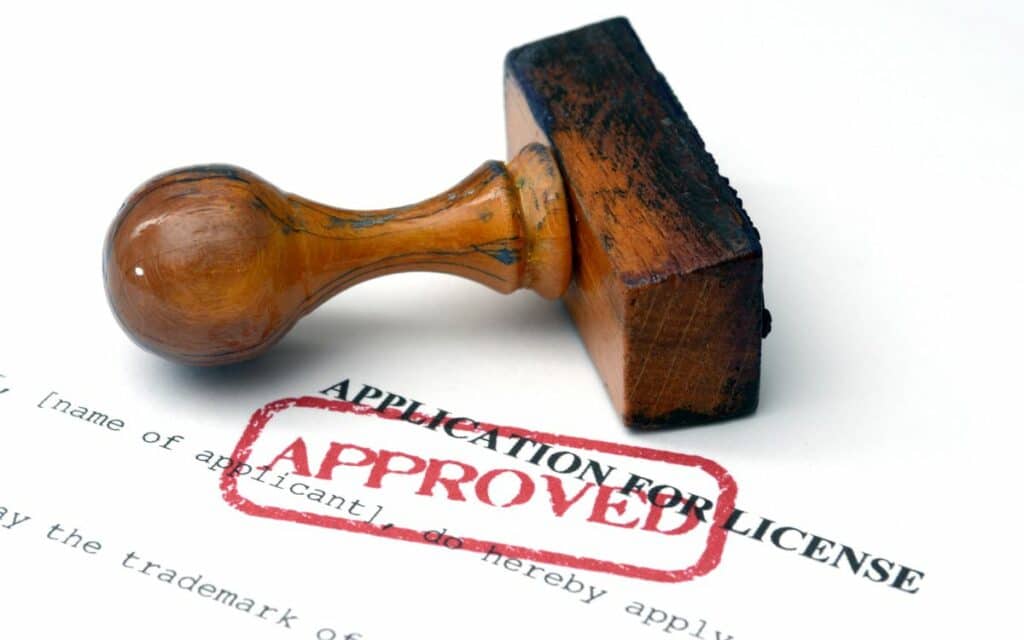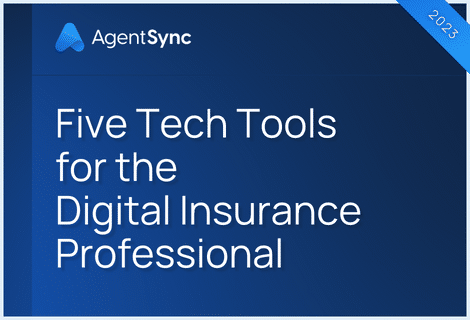

Unpredictable state-based processing times are a pain point for those in the insurance industry, and when it comes to nonresident license applications, it’s a paper cut with rubbing alcohol and a pinch of salt ground in.
The internet has made the local global, and that’s true in insurance, as well. So, if an independent insurance agent has an online marketing campaign, the odds are pretty good they could end up soliciting clients beyond their state border. In that case, an agent needs to have a license not just in their own state, but in the state their prospective clients are in.
Particularly with the proliferation of Zoom-first client meetings, it’s increasingly likely a producer will come across clients who’re asking for insurance services but who will require the producer to get a nonresident license in the clients’ state.
Often, agencies take on the responsibility of nonresident licensing for their producers, managing licensing renewals and nonresident applications as a value-added service. If that describes a service you provide, this scenario of online sales and solicitation puts you in a delicate position: You don’t want producers fudging nonresident license application dates to get compliant for a sale they’ve already made (this is a Not Good™ practice). Producers also don’t want to wait for nonresident applications to process once they’ve already hooked a prospective client and need to start the sales process in earnest.
So, what’s an agency to do?
Understand specific state turn times
If you have even a few months of work under your belt in an insurance compliance capacity, you know each state handles things differently. So you also know you aren’t doing yourself any favors if you treat every state the same.
Setting expectations for your producers and making sure they have their license in time for any client meetings or sales events depends heavily on what a state’s processing time is.
Overall, average state nonresident producer licensing approvals have a broad range. Many states boast average processing times of a day or less. Others average much longer, such as South Dakota, which currently has the longest average processing time of 21 days.
Make your agency process hyper efficient
Getting a handle on state averages is only the first piece of setting up your nonresident license processing expectations. The other half of it is based on how quickly your team can move.
A team that has digital processes and a forward alert system for producers to request a new license can have a request completed in a day in the right state. But an agency that relies too heavily on a single person’s knowledge base, or that relies on a system of emails, phone calls, and paperwork can find themselves inadvertently adding precious days of delays to the process.
Best practices to keep agency turn times quick:
- Keeping your producer information up-to-date in your system means you already have what you need for most states using an NAIC Uniform Application for Individual Insurance Producer License.
- Allowing your producer to use an individual portal to make a nonresident license application request can also go a long way toward mitigating your internal delays.
- Baking state-specific requirements into your application process is also key in reducing drag.
Consider relevant upstream carrier relationships
Depending on the state, your producer’s carrier may also have to have an individual-level appointment for a producer in their desired state.
If you’re wishing to save time on the front end, establish the process through which a producer should request an appointment in a new, nonresident state before the situation ever arises. Different carriers’ processes may require that a producer give a certain amount of notice before the carrier will approve an appointment. Others that have optimized Just-In-Time appointments may require the producer to submit business in the new state before they authorize an appointment.
Regardless, your carriers’ processes will add their own layer to what a realistic turntime is. Carriers that continue to require paper copies of a producer’s license will certainly add lag time to a producer’s ability to sell in a new state. Conversely, carriers that can appoint producers via digital processes or that use a JIT process can help you get producers appointed and licensed in a same-day timeline.

Set realistic expectations with producers
Of course, averages can only get you so far. Producers with complicated licenses that don’t have clear one-to-one equivalents in a nonresident state may have to do more legwork to get an approval. Producers with spotty records or unpaid child support may be denied or have a tough time getting approval based on the nonresident state’s regulatory climate. Setting producer expectations and establishing a standard can help preserve your relationship.
Additionally, holding off on obtaining a nonresident producer license until it’s necessary may make sense in states with quicker turn times, but others may warrant an application sooner rather than later. For instance, if there’s a reasonable chance a producer might sell insurance in, or to people from, Georgia, they likely want to apply straightaway.
To understand which states have quicker (or slower) turnarounds on nonresident producer licensing applications, don’t forget to check out our averages by accessing the 50 state summary here, where you can download a point-in-time snapshot of regulatory data.
And, if you want to tighten those internal processing times to “as quick as possible,” see what AgentSync can do to help.

